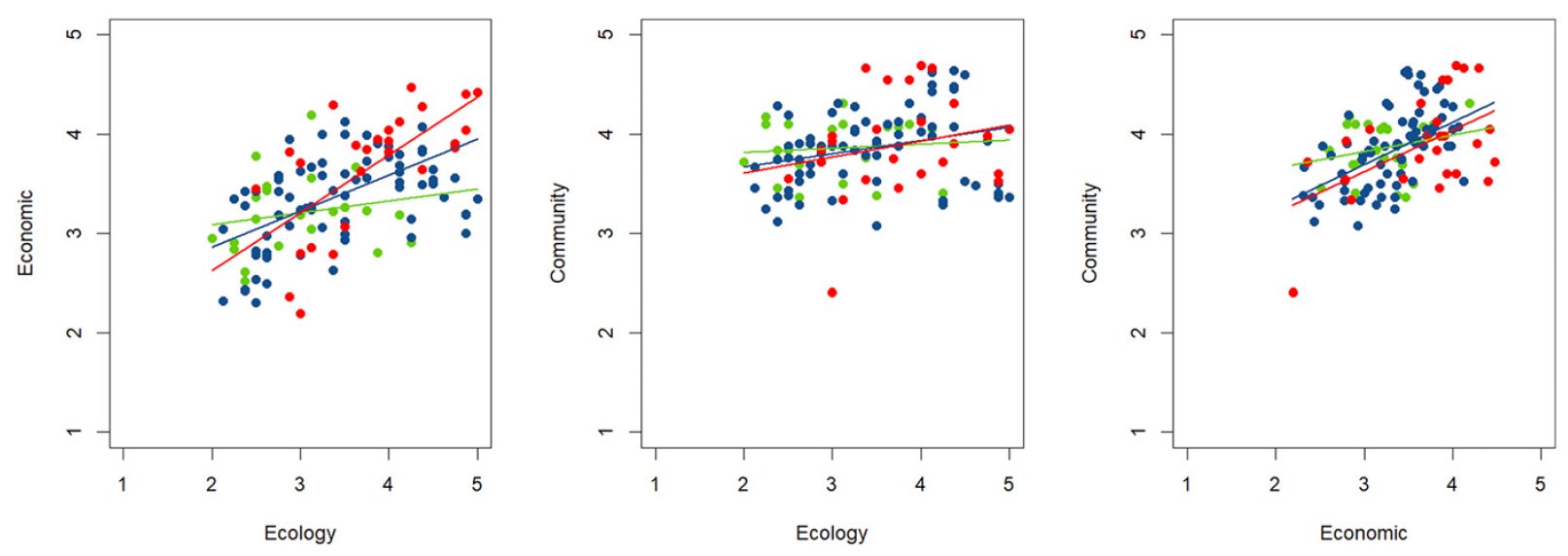The three pillars of fisheries sustainability
Fisheries management is often seen as a balancing act that aims for economic development, environmental protection and social development. Previous work shows that overfishing or other forms of poor ecological health, reduces economic profits; and it has long been assumed that pursuit of profits leads to poor social outcomes for fishing communities. But now a new analysis of 121 fisheries worldwide suggests this second assumption may not hold, based on scores of 68 different ecological, economic, and social metrics for each fishery. The results show that there is a positive link between all three of the pillars of fisheries sustainability, such that better profits lead to better social outcomes and better ecological protection, and that at worst, the three pillars are not correlated with each other. The positive correlations among the pillars are stronger with increased use of rights in fisheries management, with harvest rights showing the strongest correlations and open access the weakest. The new work by an international group of authors including SAFS professor Chris Anderson, appears in the journal PNAS.
